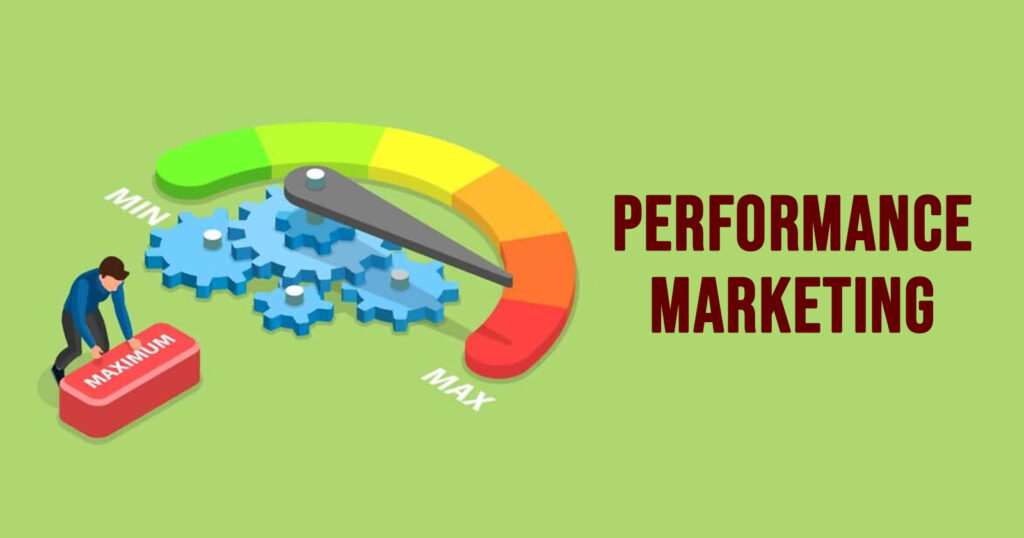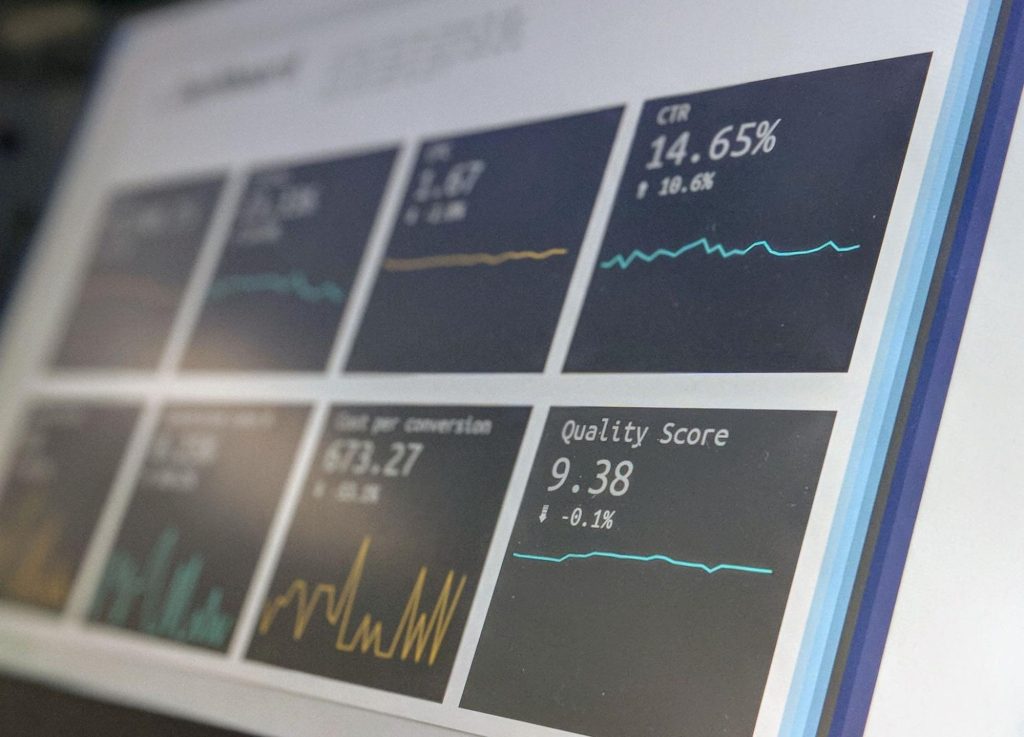The Ultimate Guide to Performance Marketing: Driving Results and Maximizing ROI
Mastering Performance Marketing: Strategies for Maximizing ROI and Driving Results

Introduction
In the ever-changing landscape of online advertising, performance marketing has emerged as a vital approach for companies striving for quantifiable and significant outcomes. Distinct from conventional advertising techniques that frequently rely on wide-ranging metrics and elusive success markers, performance marketing is defined by its emphasis on distinct, measurable results. This detailed manual will explore the basics of performance marketing, underscore its advantages, and offer practical advice to enhance your campaigns for optimal efficiency.
What is Performance Marketing?
Performance marketing involves a strategy in which companies pay for certain behaviors exhibited by their target audience, like visits, inquiries, purchases, or any other set outcomes. This framework guarantees that the money invested in marketing is directly linked to real-world business outcomes, rendering it a very effective and responsible approach. The main aim of performance marketing is to achieve measurable outcomes that can be monitored and examined, providing clarity and authority over the allocation of marketing funds.

Key Components of Performance Marketing
1. Pay-Per-Click (PPC) Advertising
PPC advertising involves bidding on keywords relevant to your products or services on platforms like Google Ads and Bing Ads. Advertisers only pay when a user clicks on their ad, ensuring that the budget is spent on potential leads. PPC campaigns can be highly targeted, allowing businesses to reach specific demographics, locations, and interests.
2.Affiliate Marketing
Affiliate marketing involves partnering with affiliates who promote your products or services in exchange for a commission on conversions. This extends your reach by leveraging the audience of the affiliate partners. Affiliates can include bloggers, influencers, and websites that share your target market. This model is beneficial because you only pay for actual sales or leads generated by the affiliates.
3.Social Media Advertising
Platforms like Facebook, Instagram, LinkedIn, and Twitter offer targeted advertising options that can be optimized for clicks, impressions, or conversions. Social media advertising allows businesses to engage with their audience in a more interactive and personal way, often leading to higher engagement rates and better ROI.
4.Email Marketing
Email campaigns can be performance-based, where businesses pay based on engagement metrics such as opens, clicks, and conversions. Email marketing is a powerful tool for nurturing leads and maintaining customer relationships. Personalized and segmented email campaigns can significantly boost conversion rates.
5.Content Marketing
Performance content marketing involves creating and distributing valuable content aimed at driving specific actions. This could include blog posts, videos, infographics, and more. Tracking the performance of each piece of content helps in optimizing future campaigns and understanding what resonates with your audience.

Benefits of Performance Marketing
1.Measurable ROI
Performance marketing provides clear metrics and analytics, making it easy to measure the ROI of each campaign. This transparency helps in making informed decisions and justifying marketing spend. You can track every dollar spent and its impact on your business, ensuring efficient allocation of resources.
2.Cost-Effective
Since you only pay for actual results, performance marketing ensures that your budget is utilized efficiently. This minimizes waste and maximizes the impact of your marketing efforts. Performance-based models like PPC and affiliate marketing mean that you’re investing in concrete outcomes rather than hoping for generalized exposure.
3.Targeted Approach
Performance marketing campaigns can be highly targeted based on demographics, interests, behaviors, and more. This ensures that your ads reach the right audience, increasing the likelihood of conversions. Advanced targeting options available on platforms like Google Ads and social media networks allow for precision marketing, reaching potential customers who are most likely to convert.
4.Scalability
Performance marketing allows for easy scalability. As you identify successful strategies, you can allocate more budget to those campaigns, driving even greater results. This flexibility means you can start with a smaller investment, test different approaches, and then scale up the most effective campaigns.
How to Optimize Your Performance Marketing Campaigns
1.Set Clear Goals
Define what success looks like for your campaign. Whether it’s increasing sales, generating leads, or boosting website traffic, having clear goals will guide your strategy and measurement. Ensure your goals are specific, measurable, achievable, relevant, and time-bound (SMART).
2.Leverage Data Analytics
Utilize data analytics tools to monitor and analyze the performance of your campaigns. Identify trends, understand customer behavior, and make data-driven decisions to optimize your efforts. Tools like Google Analytics, Facebook Insights, and various CRM platforms can provide valuable insights into campaign performance.
3.A/B Testing
Experiment with different ad creatives, landing pages, and calls-to-action to see what resonates best with your audience. A/B testing helps in refining your approach and improving conversion rates. By continuously testing and iterating, you can optimize each element of your campaign for maximum effectiveness.
4.Optimize for Mobile
With the increasing use of mobile devices, ensure that your campaigns are optimized for mobile users. This includes mobile-friendly landing pages, responsive ads, and fast-loading times. Mobile optimization is crucial as a significant portion of online traffic and conversions now come from mobile users.
5.Utilize Retargeting
Retargeting helps in re-engaging users who have interacted with your brand but haven’t converted yet. By reminding them of your offerings, you can drive them further down the conversion funnel. Retargeting can be implemented through various platforms, including Google Ads and social media networks, allowing you to stay top-of-mind for potential customers.
Conclusion
Performance marketing is a strong strategy that matches marketing activities with company goals, making sure that each investment leads to quantifiable outcomes. By grasping its essential elements, advantages, and ways to enhance it, companies can unlock the complete power of performance marketing to propel expansion and secure a greater return on investment. Start adopting performance marketing now and see your company reach unprecedented levels of success.
Why Digital Marketing is Essential for Small Businesses
Importance of Digital Marketing For Small Businesses
In today’s digital age, businesses of all sizes are shifting towards online platforms to reach their target audiences. Digital marketing has become an essential tool for small businesses to grow their online presence, reach more customers, and compete with larger businesses. In this article, we will explore why digital marketing is crucial for small businesses and how it can help them achieve their goals.
Table of Contents
- Introduction
- What is Digital Marketing?
- Benefits of Digital Marketing for Small Businesses
- Increased Visibility and Reach
- Cost-Effective
- Measurable Results
- Targeted Marketing
- Better Customer Engagement
- Digital Marketing Strategies for Small Businesses
- Search Engine Optimization (SEO)
- Pay-Per-Click (PPC) Advertising
- Social Media Marketing
- Email Marketing
- Content Marketing
- Conclusion
- FAQs
Introduction
In the past, traditional marketing methods such as print ads, billboards, and radio commercials were the norm for small businesses to promote their products or services. However, with the rise of the internet and social media, digital marketing has emerged as a powerful tool for small businesses to reach their target audiences.
What is Digital Marketing?
Digital marketing refers to the use of online channels such as search engines, social media, email, and websites to promote products or services to potential customers. It encompasses a wide range of strategies and tactics that help businesses build their online presence and attract new customers.
Benefits of Digital Marketing for Small Businesses
Increased Visibility and Reach
One of the significant advantages of digital marketing for small businesses is the ability to reach a wider audience. With the right digital marketing strategies, small businesses can gain exposure to potential customers who may not have otherwise known about their products or services.
Cost-Effective
Digital marketing is cost-effective compared to traditional marketing methods. Small businesses with limited budgets can use digital marketing strategies such as social media marketing, email marketing, and content marketing to reach their target audience without spending a lot of money.
Measurable Results
Unlike traditional marketing methods, digital marketing allows small businesses to track and measure their results in real-time. Business owners can use analytics tools to monitor their website traffic, social media engagement, and other metrics to measure the effectiveness of their digital marketing campaigns.
Targeted Marketing
Digital marketing enables small businesses to target their ideal customers more accurately. Through tools like social media advertising and PPC advertising, businesses can reach specific audiences based on demographics, interests, and behaviors.
Better Customer Engagement
Digital marketing provides small businesses with the opportunity to engage with their customers in real-time. By responding to customer inquiries and feedback on social media and through email, businesses can build trust and strengthen customer relationships.
Digital Marketing Strategies for Small Businesses
Small businesses can use various digital marketing strategies to build their online presence and reach their target audience. Here are some of the most effective strategies:
Search Engine Optimization (SEO)
SEO is the process of optimizing a website to rank higher in search engine results pages (SERPs). Small businesses can use SEO to improve their website’s visibility and attract more organic traffic.
Pay-Per-Click (PPC) Advertising
PPC advertising allows businesses to place ads on search engine results pages and social media platforms. Businesses only pay for the ad when someone clicks on it, making it a cost-effective way to attract potential customers.
Social Media Marketing
Social media marketing involves using social media platforms to promote products or services. Small businesses can use social media to engage with customers, build brand awareness, and drive traffic to their website.
Email Marketing
Email marketing involves sending promotional messages and newsletters to subscribers via email. Small businesses can use email marketing to nurture leads, build customer loyalty, and drive sales.
Content Marketing
Content marketing involves creating and sharing valuable content such as blog posts, videos, and infographics to attract and retain a clearly defined audience. Small businesses can use content marketing to establish themselves as thought leaders in their industry and attract more customers.
Conclusion
Digital marketing has become an essential tool for small businesses to grow their online presence and reach more customers. By using the right digital marketing strategies, small businesses can increase their visibility, reach their target audience more effectively, and engage with their customers in real-time. Whether it is through SEO, PPC advertising, social media marketing, email marketing, or content marketing, small businesses can leverage digital marketing to achieve their business goals.
FAQs
- What is digital marketing, and why is it important for small businesses?
Digital marketing refers to the use of online channels such as search engines, social media, email, and websites to promote products or services to potential customers. It is essential for small businesses because it can help them increase their visibility, reach more customers, and engage with them in real-time.
- What are some of the benefits of digital marketing for small businesses?
Digital marketing is cost-effective, measurable, and allows small businesses to target their ideal customers more accurately. It also provides better customer engagement opportunities and can help businesses reach a wider audience.
- What are some of the most effective digital marketing strategies for small businesses?
Some of the most effective digital marketing strategies for small businesses include search engine optimization (SEO), pay-per-click (PPC) advertising, social media marketing, email marketing, and content marketing.
- How can small businesses measure the effectiveness of their digital marketing campaigns?
Small businesses can use analytics tools to track and measure their website traffic, social media engagement, and other metrics to measure the effectiveness of their digital marketing campaigns.
- How can small businesses get started with digital marketing?
Small businesses can get started with digital marketing by defining their goals, identifying their target audience, and developing a digital marketing strategy that aligns with their business objectives. They can also consider partnering with a digital marketing agency to help them navigate the complex world of digital marketing.
How to choose a digital marketing agency

Choosing a digital marketing agency
In today’s digital age, it is essential for businesses to have an online presence. One of the most effective ways to do this is through digital marketing. However, not all companies have the expertise or resources to handle their own digital marketing campaigns. This is where digital marketing agencies come in. Choosing the right digital marketing agency can be a daunting task, but with the right knowledge and research, you can make an informed decision. In this article, we will guide you through the process of how to choose a digital marketing agency.
Understanding Your Needs
Before you start searching for a digital marketing agency, you need to have a clear understanding of your own needs. Consider the following questions:
What Are Your Goals?
Before you can choose a digital marketing agency, you need to have a clear idea of what you want to achieve with your digital marketing campaign. Are you looking to increase brand awareness, generate leads, or drive sales? Your goals will determine the type of digital marketing services you need.
What Is Your Budget?
Digital marketing agencies offer a range of services at varying prices. Before you start your search, you need to have a clear idea of how much you can afford to spend on digital marketing.
What Are Your Time Constraints?
Do you need to see results quickly or do you have a more flexible timeline? Some digital marketing strategies take longer to implement than others, so it’s important to consider your time constraints when choosing a digital marketing agency.
Researching Digital Marketing Agencies
Once you have a clear understanding of your own needs, you can start researching digital marketing agencies. Here are some tips for finding the right agency:
Look at Their Website
A digital marketing agency’s website is a reflection of their expertise and capabilities. Look for a website that is well-designed, easy to navigate, and showcases their services.
Read Reviews and Testimonials
Reading reviews and testimonials from previous clients can give you valuable insight into the agency’s customer service, communication, and results.
Look at Their Portfolio
A digital marketing agency’s portfolio will give you an idea of the types of clients they have worked with and the results they have achieved.
Check Their Certifications
Digital marketing agencies may have certifications from organizations such as Google or Hubspot. These certifications indicate that the agency has a high level of expertise in digital marketing.
Schedule a Consultation
Many digital marketing agencies offer free consultations. This is a great opportunity to discuss your needs and goals with the agency and determine if they are a good fit for your business.
Choosing the Right Digital Marketing Agency
After you have researched several digital marketing agencies, it’s time to make a decision. Here are some factors to consider when choosing the right agency:
Expertise and Services Offered
Choose a digital marketing agency that has expertise in the areas you need. For example, if you need help with social media marketing, look for an agency that specializes in that area.
Communication
Choose a digital marketing agency that communicates clearly and regularly. You want an agency that is responsive to your needs and keeps you updated on the progress of your campaign.
Results
Choose a digital marketing agency that has a track record of achieving results. Look for case studies or testimonials that showcase the agency’s successes.
Price
Choose a digital marketing agency that offers services at a price that fits your budget. Keep in mind that the cheapest option may not always be the best choice.
Conclusion
Choosing the right digital marketing agency is a critical decision for any business. By understanding your own needs, researching several agencies, and considering factors such as expertise, communication, and results, you can make an informed decision. Remember to choose an agency that aligns with your goals and budget and has a track record of achieving



